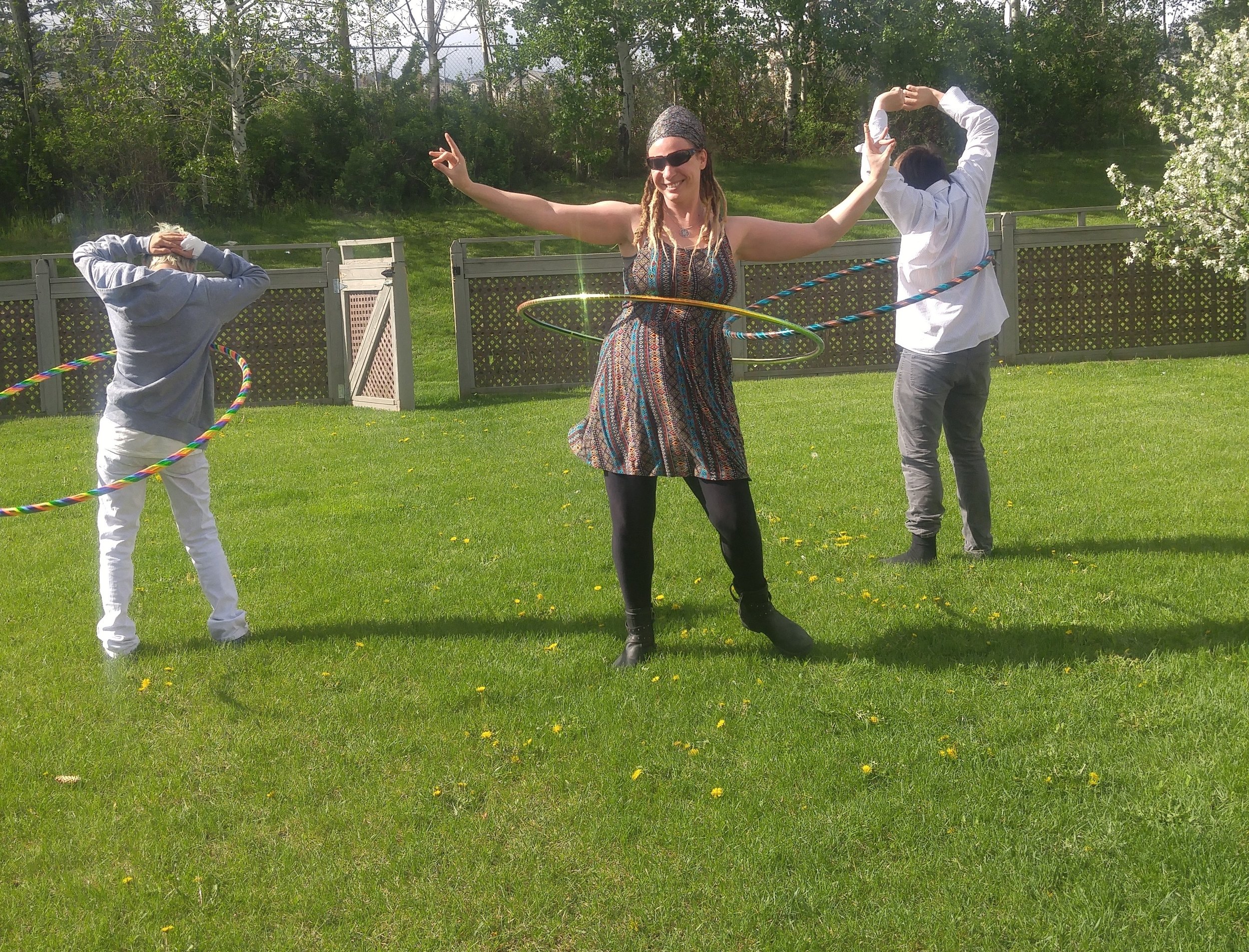Making It Happen: Caroline, Alternate Teaching Parent | Closer To Home
My company featured my therapy work with kids and hoops! Click the link above to read the article. I wanted to write more about some of my experience hooping with troubled teens in a group home. The internal and external chaos these kids live with is significant. They have experienced trauma, abuse, neglect and abandonment. These are not, in general, the happiest kids. We try to bring stability, love and consistency into their lives as stand-in parents.
Closer to Home uses the Teaching Family Model to help kids learn to use essential skills they will need to be successful as adults. Accepting no, following instructions, emotional regulation and problem-solving are things we work on every day. Privileges like video games and Netflix, and hanging out in the city unsupervised, are earned when the youth are using their skills. Privileges are limited when the kids are struggling, but we never take away educational programming, sports, access to outside, being with others, music, etc.
Good things happen when we can turn their favorite music on and get to doing my favorite activity, hula hooping, in the sunshine or in the high ceilinged great-room of the group home. The kids are so expressive and it brings smiles and laughter to us every time. I am using this circle as a healing tool for the kids I work with as often as I can. I always have a bright colourful pile of hoops lying around, and make hoops for kids who like using them. Even the most resistant of surly teenagers has used them when I got their favorite music playing and they had "nothing else to do" because their use of electronic devices was limited. ;)
This photo means a lot to me. It's my job to keep these kids safe and teach them skills, helping them to navigate life with parental like care. Sometimes it's a really hard job. I have a special relationship with the kids I work with, especially these two. They are the ones I mention in the interview.
One of the youth not mentioned in the article is a young man with FASD. He doesn't use his hoop regularly, but when he does it's for hours at a time. Showing me his inventive moves (seriously, you wouldn't believe how fresh these kids are with their hoops) and learning tricks, he is smiling, relaxed and calm. He usually presents as quite intense. I really love that kid and do my best to treat him with compassion and respect no matter how he treats me. I don't think anyone can fully understand how magical and therapeutic it is when we are hooping together. Only through relationship can past traumas be healed. He heals me too, making me a more patient person, with a thicker skin and a better ability to remain calm when others are not. This hoop has allowed me to connect with someone who is often manic, verbally aggressive, and depressed. To hear him ask me politely if we can hoop together and take turns playing our favorite songs like we did last time is head-turning and it tells me that he felt way better after hoop dancing for several hours, because it made him feel happy. That, to me, is success.


